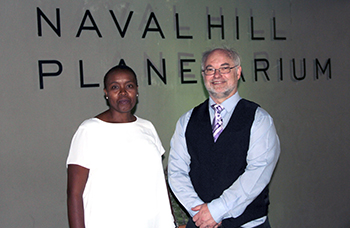Latest News Archive
Please select Category, Year, and then Month to display items
![]()
The Centre for Gender and Africa Studies (CGAS) and the UFS will host an Africa Day Webinar on the topic, Reflections on Africa amidst Covid-19, to be delivered by Prof. Sabelo J. Ndlovu-Gatsheni, renowned decolonial scholar. The title of his lecture is Revisiting the African idea of Africa during the moment of Covid-19 pandemic.
The crisis delivered by Coronavirus and Covid-19 invites Africans to rethink and even unthink the long-standing dependency on Europe and North America for help. What has dawned on Africa is the equally long-standing aspiration of self-reliance. What is emerging is a new African idea of Africa which takes responsibility for its own challenges. This new African idea of Africa challenges the Mudimbean idea of Africa embodied in the colonial library.
Thus this presentation reassesses how Africa has relied on its own historical experience, its own knowledge, and own people to confront Covid-19. What is of interest here is the proverbial wisdom of necessity being the source of invention. The presentation brings to the fore the decolonial turn as it gestures beyond crisis into post-Covid-19 world order. It ends with a call for decolonial love founded on new ethics of living together and new economies of care.
Bio of Prof Sabelo J. Ndlovu-Gatshen
Date: Tuesday, 26 May, 2020
Time: 14:00
Duration: 90 min max (45 min talk, 45 min Q&A)
The webinar can be accessed via one of the following links:
OR
An out-of-this-world experience
2015-12-14

Film premiere hosts Professor Matie Hoffman, manager of the Naval Hill Planetarium and the planetarium’s operations manager, Tina Mangope. |
The Naval Hill Planetarium in Bloemfontein premiered two new short astronomy films on 4 December 2015, with marvellous cosmic visuals explaining how the earth and all the planetary formations in our galaxy and the universe were created.
The two films, aptly titled ‘Cosmic Collisions’ and ‘Journey to the Stars’, were both made to enhance people’s knowledge about the universe and the vast dynamics within it. They were donated to the Bloemfontein-based planetarium by the American Museum of Natural History in collaboration with several other US space science intuitions, including the National Aeronautics and Space Administration (NASA).
“These two fantastic state-of-the-art films are scientifically accurate and very expansive,” said Professor Matie Hoffman of the Department of Physics and Astronomy at the University of the Free State. Hoffman is also the planetarium’s manager.
Nestled in the bushy landscape of historic Naval Hill - also home to the iconic statue of Nelson Mandela and the Franklin Game Reserve - the Naval Hill Planetarium was opened in 2013. It is the first digital planetarium in Sub-Saharan Africa, and is situated at the old Lamont-Hussey Observatory Building, which was closed in 1972.